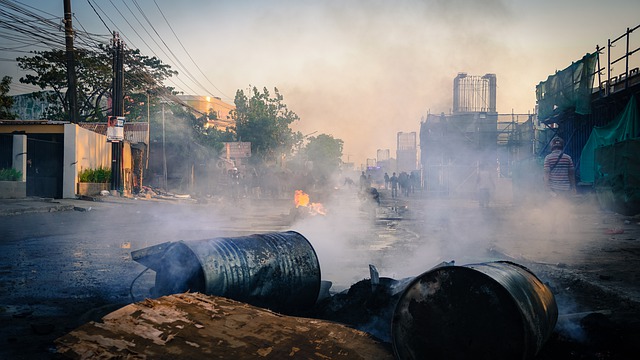Angry protesters today blocked several roads and set fire to tires and rubbish bins in several parts of Lebanon to protest severe gas shortages and power outages in a country plagued by a severe economic crisis.
Social unrest intensifies on the eve of the projected increase in fuel prices following the government’s decision to reduce subsidies on oil products.
The protesters are also angry about the long power outages, which sometimes last more than 21 hours a day, and about the distribution of electricity imposed by the district generator network due to lack of fuel. This caused malfunctions in some hospitals today and the cessation of activity at the General Security headquarters in Beirut, according to local media.
According to a correspondent of the French Agency, the main roads of the capital were blocked in the afternoon by angry protesters.
Roads were also blocked north and southeast of Beirut, the national news agency ANI reported.
In Nabatieh (south), protesters parked their cars in the middle of a major highway, according to the same source.
In the face of the deteriorating situation, Lebanese President Michel Aoun convened a meeting of the Supreme Defense Council today, Tuesday, on the “security situation”.
On Saturday, twenty people were injured during night demonstrations in the city of Tripoli (north) against the backdrop of a new devaluation of the hryvnia.
Since the crisis began in the fall of 2019, one of the worst in the world since 1850, according to the World Bank, the Lebanese pound has lost more than 95% of its value against the dollar.
Although the official exchange rate, which has been set for more than two decades, remains at 50 1,507 per dollar, the dollar is traded at more than 17 17,000 on the black market.
Tonight, the General Directorate of Petroleum at the Ministry of Energy announced a new fuel price sheet that is expected to enter into force tomorrow, at an exchange rate of 3,900 pounds per dollar, compared to 1,500 earlier.
The country is experiencing an explosion of unemployment and inflation, factors that accelerated large-scale impoverishment, half of the population now lives below the poverty line, according to the UN.
In addition, Lebanon has been without a new government for more than ten months.



